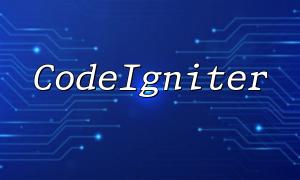PHP, as a widely-used programming language, plays an essential role in the development of internet applications. Its simplicity and ease of learning make it a preferred choice for many developers. This article shares experiences and tips from PHP development to help developers implement various functions more efficiently and enhance system performance and stability.
Database design is a core component of PHP development. A well-structured database can significantly improve system performance and ensure data consistency. When designing the structure, it's essential to clarify system requirements and convert them into appropriate table structures. Avoiding redundant fields, ensuring proper data distribution, and using appropriate indexes and relationship constraints can effectively improve database performance. Additionally, data integrity and consistency should always be considered.
Security in PHP development is an issue that cannot be overlooked. Preventing SQL injection, XSS attacks, CSRF attacks, and other threats is fundamental knowledge every developer should master. Using parameterized queries and prepared statements can effectively prevent SQL injection, while filtering and escaping user input can guard against XSS attacks. Generating and validating CSRF tokens is a common method to prevent CSRF attacks.
Modular development and code reusability not only improve development efficiency but also reduce redundant code and enhance the maintainability and scalability of the system. By dividing system functionality into independent modules and using interfaces or classes to call these modules, developers ensure that the code structure remains clear and manageable. In future development, reusing these modules will significantly reduce development costs.
Database queries are common operations in PHP development, and improving query efficiency directly impacts system performance. Using indexes, optimizing table structures, and avoiding full table scans can greatly improve query speed. Additionally, leveraging caching mechanisms can reduce repetitive database accesses, enhancing system response time and processing capacity.
Log recording and exception handling are essential for system stability and improving maintainability. During development, PHP's built-in logging functions can be used to record error messages, which facilitates bug tracking and resolution. Using try-catch statements properly helps catch and handle exceptions, ensuring the system remains stable when problems arise.
Efficient data interaction between the frontend and backend is crucial for improving user experience. Using AJAX technology allows for asynchronous data loading, avoiding frequent page refreshes and providing a smoother user experience. Additionally, using the JSON format for data transmission increases efficiency and minimizes errors caused by format issues.
From this article, it's clear that in PHP development, aspects such as database design, security, modular development, query optimization, log recording, and data interaction all play important roles. While PHP is easy to learn, becoming an excellent PHP developer requires continuous learning and practice. I hope the experiences shared in this article help developers enhance their skills and develop more efficiently.








